Never make a bad omelet again.
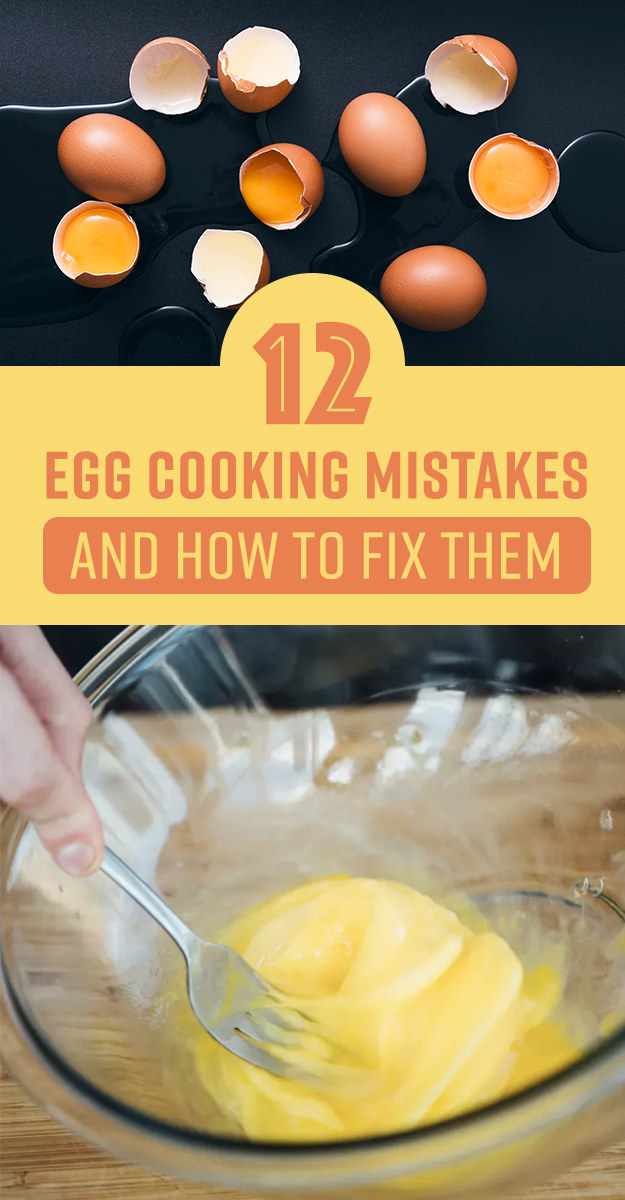
Jenny Chang / BuzzFeed
You're not using a non-stick pan.
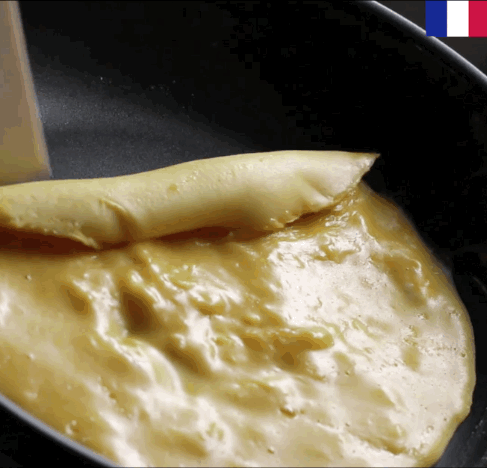
Non-stick pans aren't great for everything (their heat distribution isn't the best) but they're definitely a must if you're trying to make great eggs. The day I bought mine, my omelets went from being a mess to being legit works of art. (I even take my pan with me on weekend trips when I know I'll have to cook breakfast.) So get yourself a good non-stick pan (this one's my favorite) and make sure to take good care of it and not to use any metal utensils when you use it.
You don't beat your eggs well enough when you're making omelets or scrambled eggs.
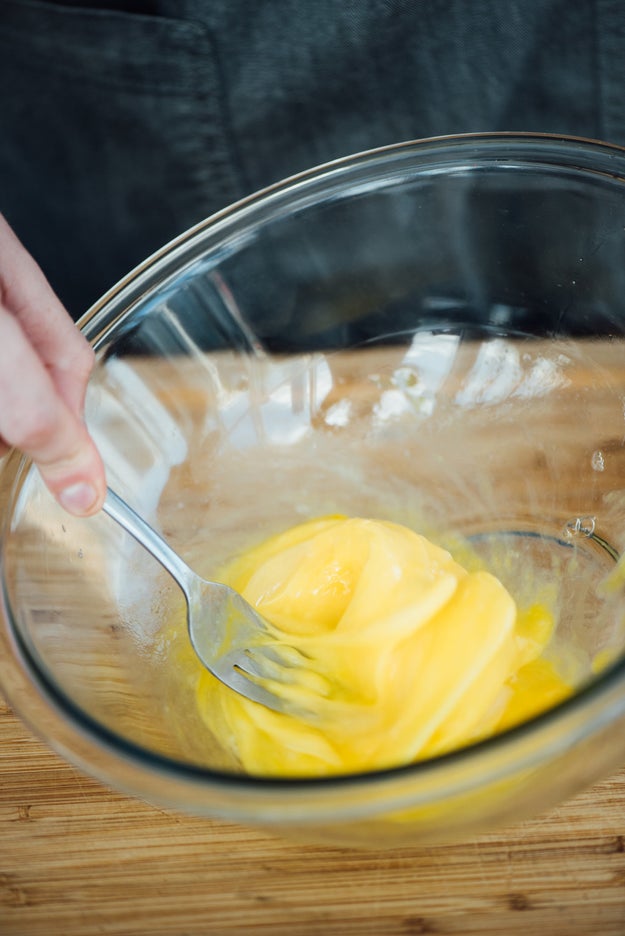
First: don't even think about cracking your eggs straight into the pan and mixing them in there. For the best omelets and scrambled eggs, you'll want your eggs to be beaten until they're completely homogenous, with no white streaks left. Just make sure you're not letting air in when you're beating, as you would do when making a cake. You want your eggs to be homogenous but not foamy. If you really want to be fancy about it, you can also blend your eggs quickly to get a perfect result, but a fork will do if you don't want to go that far.
Taylor Miller / BuzzFeed
You skimp on the butter.
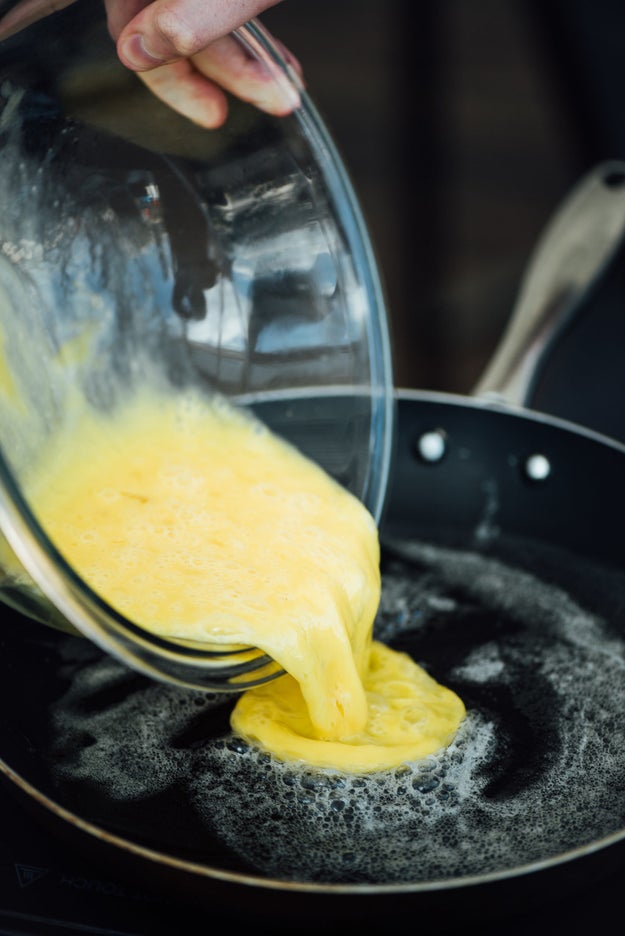
Listen: If you want delicious, creamy, and beautiful scrambled eggs and omelets, you need to be generous with your butter. I'm not saying you have to use an entire stick — but don't be afraid to pop a couple tablespoons in the pan.
Taylor Miller / BuzzFeed
You set your heat too high.
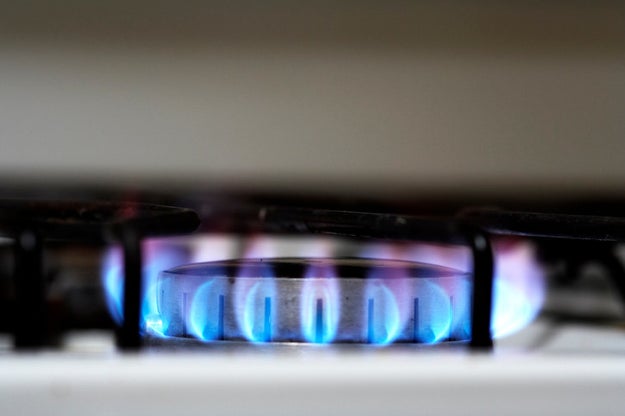
The key to perfect scrambled eggs and omelets is gentle heat. So don't rush things! It might take a little longer for your eggs to cook but the result will be so much better.
Marekl / Getty Images
You don't move the pan enough as your omelet cooks.
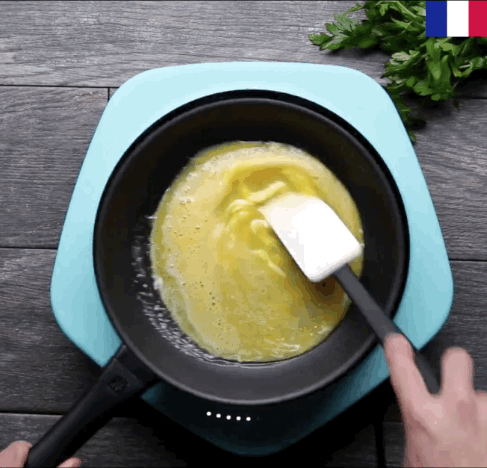
For the perfect French omelet, you need to stir the egg mixture so it doesn't develop a brown crust, all the while shaking the pan on the heat, so it doesn't turn into scrambled eggs. Once the egg starts to curdle, let the omelet sit without stirring or shaking the pan so that it finishes cooking. That's also when you can add your toppings, before folding the omelet and serving it right away.
You cook your scrambled eggs for too long.
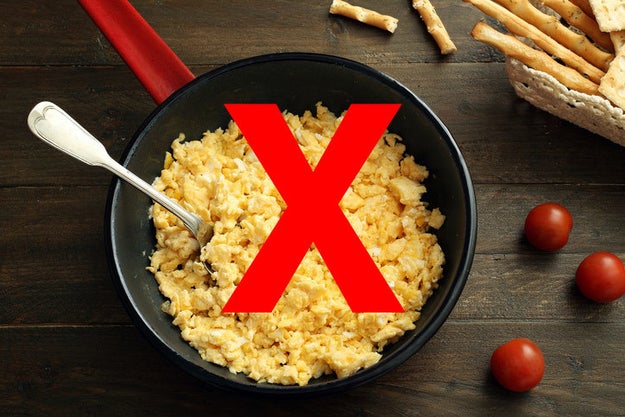
Take your scrambled eggs off the heat a little bit before you think you should. The residual heat in the eggs will continue to cook them until they're just right.
Gancino / Getty Images
When poaching an egg, you crack your egg straight into the pot of water instead of cracking it in a bowl first.
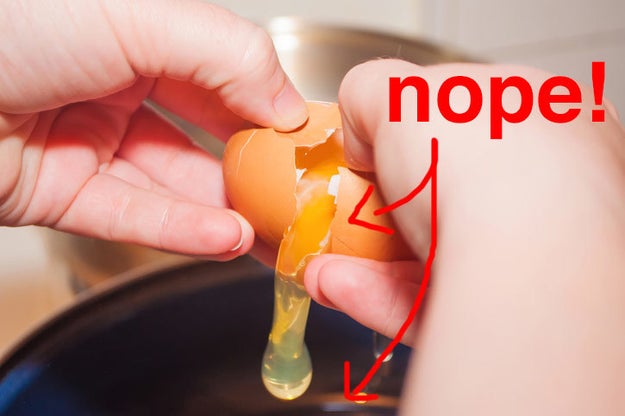
Cracking the egg into a bowl first will ensure that: 1. You can make sure your yolk isn't broken 2. You're way more in control when you drop the egg into the pot, which will prevent the egg whites from spreading in the water.
Getty Images
You poach your eggs in full-on boiling water.
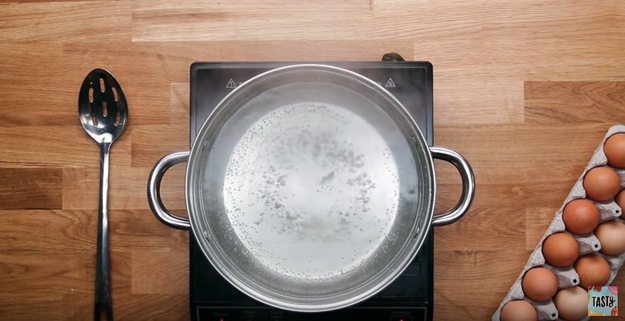
You want your water to be at a hard simmer (as pictured) but not completely boiling. If it's boiling too much, it'll disrupt the process and shake the egg. (But alternatively: If the water is too still, the egg will sink to the bottom, which is also not what you want.) Find the middle ground.
Your pan isn't hot enough when you're making fried eggs.
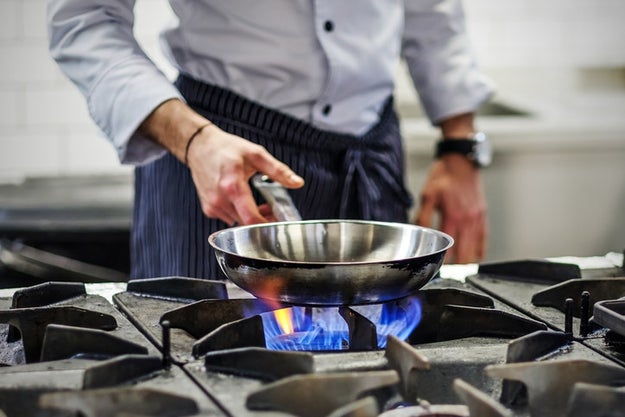
When you drop the egg in the pan, it should be hot enough that the white sets immediately and doesn't spread too much in the pan.
Koldunov / Getty Images
You use super fresh eggs when you make hard-boiled eggs.
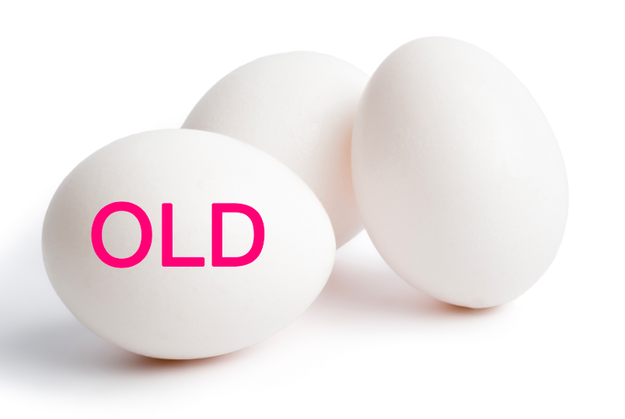
You may think that when it comes to eggs, the fresher is always the better. But it really depends on the cooking method. For hard-boiled eggs, older eggs are actually easier to peel — which makes the whole process much less of a pain in the butt. (Now, if you're making poached eggs, that's when you want to make sure your eggs are extra fresh.) And to know how fresh your eggs actually are, make sure to check out the Julian date on the egg carton.
You don't put your hard-boiled eggs into an ice bath once the cooking is done.
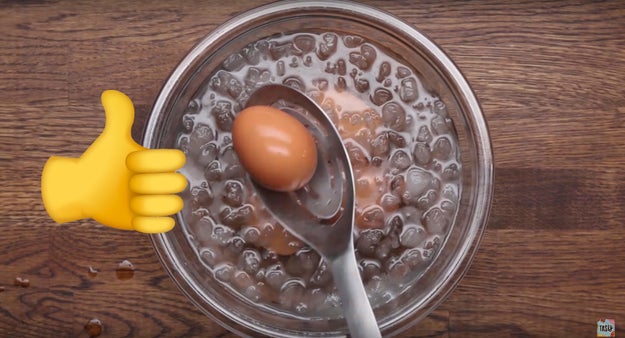
As soon as your eggs are cooked to your liking and you get them out of the pot, place them in an ice bath to stop the cooking process. Otherwise, your perfect cooking timing will have been all for nothing.
You wait too long to peel your hard boiled eggs.
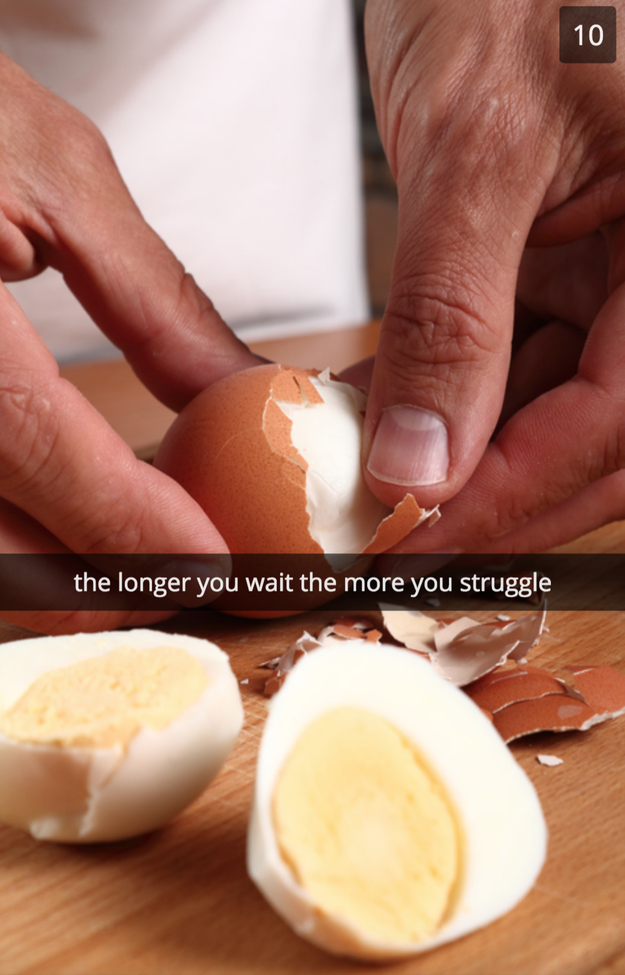
This one is pretty straightforward: The longer you wait to peel an egg, the harder it's going to be. As soon as your eggs have cooled down in the ice bath, peel them under running water and they should come out perfectly smooth. If you want to save them for later, just store them peeled, in the fridge, in an airtight container filled with water.
Getty Images
Find even more tips to improve your egg cooking skills in this video:
via BuzzFeed/Food
